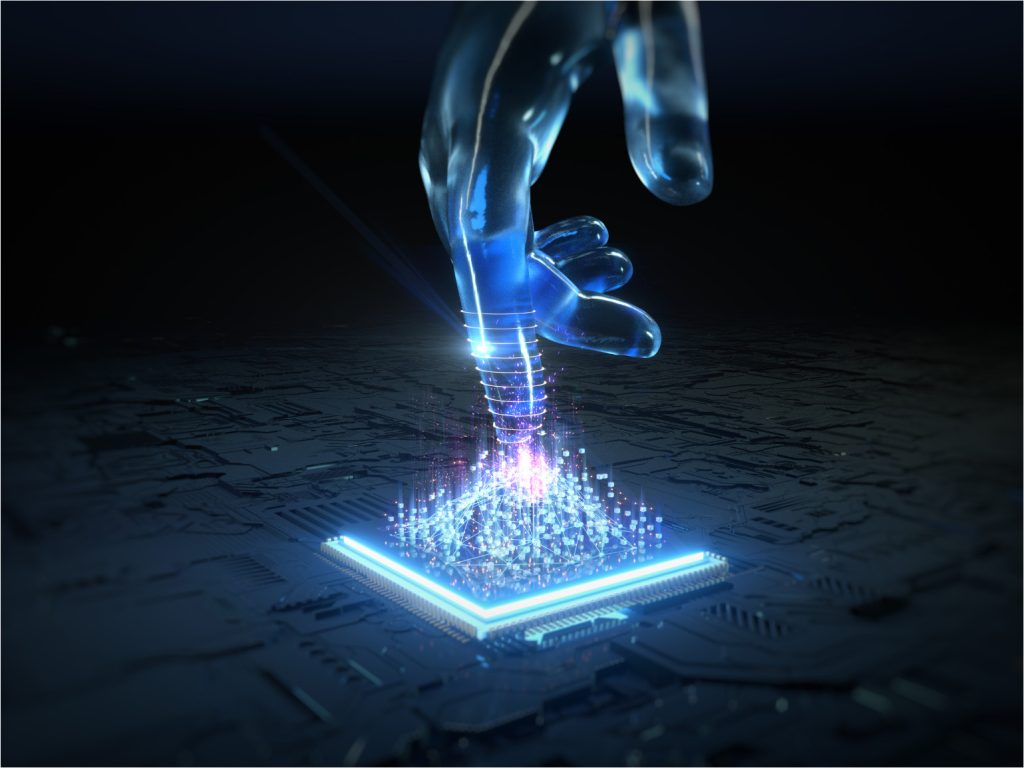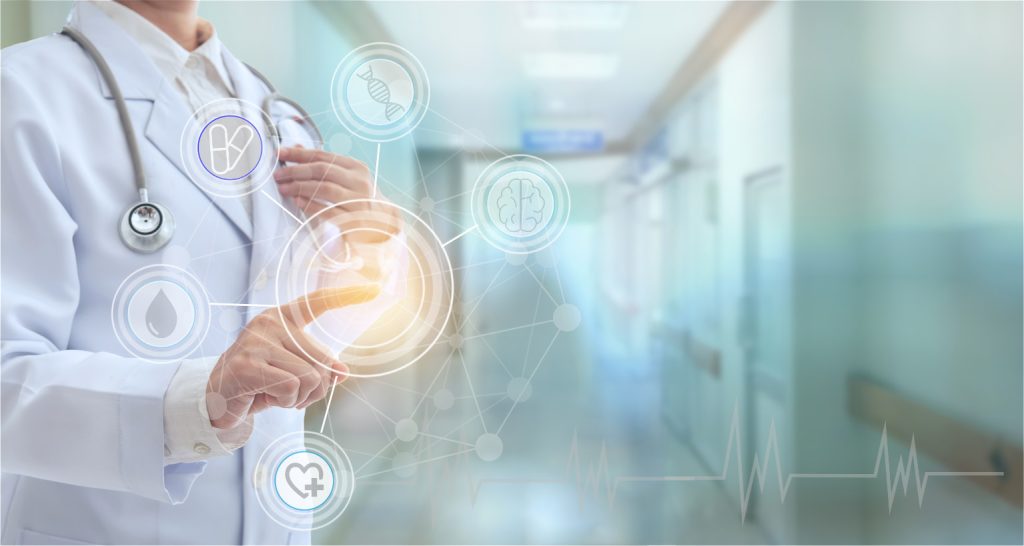Facing constant existing and new challenges every year, the Healthcare sector is used to adapting and changing to handle the pressure of the industry.
With issues like an ageing and growing population, budget restrictions and new and developing medical needs, such as the response and aftermath to the Covid-19 pandemic.
To combat the challenges, Artificial Intelligence has played a part in healthcare for decades, but the widespread use of it is relatively new, with research and development currently taking place globally.
But just how significant a part will it eventually play within the industry?

The State of Healthcare Today
Healthcare is a critical sector that affects the lives of millions of people worldwide. With an ageing global population combined with an increasing prevalence of chronic diseases, the demand for healthcare services is higher than ever before.
Despite advances in medical technology and treatments, healthcare continues to face several challenges that limit its ability to provide quality care to patients. Some of the major challenges include:
- Access to care: Many parts of the world lack access to basic healthcare services.
- Cost: Many people around the world are unable to afford the care they need, whilst central budget cuts from governments also affect the industry.
- Quality of care: Despite medical advances, the standard of care varies, particularly in regions with limited resources.
- Staff shortages: Healthcare providers are in short supply around the world, which leads to increased workloads of staff and decreased quality of care.
- Storage of data: An overwhelming amount of data from different sources makes it challenging to adapt new systems to handle the data.
All of these challenges facing the industry highlight the need for innovative solutions to help solve the problems. Artificial intelligence has emerged as a potential resolution in transforming the way departments are run, how data is stored, and predicting and diagnosing conditions.
The Rise of AI in Healthcare
The history of AI in healthcare goes back further than you would expect to the 50s, 60s and 70s, and the advent of microcomputers in the 1980s presented new possibilities, with AI systems being developed to accommodate the absence of perfect data.
Fast forward to the present, and AI has now made significant inroads, with modern solutions being used to diagnose and treat medical conditions, as well as the continued track of meaningful data.

Image Analysis
AI image analysis has become an important tool for healthcare providers in diagnosing medical conditions. By using AI algorithms to analyse medical images, such as X-rays, CT scans, and MRIs, healthcare providers can detect signs of disease or abnormalities more quickly and accurately.
Clinical Decision Support
AI-powered clinical decision support systems are becoming increasingly popular in healthcare. These systems use AI algorithms to analyse patient data, such as medical history, lab results, and vital signs, and provide healthcare providers with recommendations for diagnosis and treatment.
Predictive Modelling
AI-based predictive modelling is revolutionising the way healthcare providers approach patient care. By analysing large amounts of patient data such as medical history, lab results, and demographic information, AI algorithms can predict the likelihood of a medical condition or estimate the risk of future health problems.
Personalised Medicine
AI algorithms are used to analyse patient data and develop personalised treatment plans. By taking into account the unique characteristics of each patient such as their medical history, genetics, and lifestyle, AI-generated personalised medicine can improve the effectiveness of treatments and reduce the risk of side effects.
Medical Research
AI is being used extensively in medical research for drug discovery. By analysing large amounts of data related to disease biology, AI algorithms can help identify potential drug targets and predict the efficacy of new drugs.
In addition to this, AI can also be used to optimise drug design and streamline the drug development process, reducing the time and cost associated with bringing new drugs to market.
The Future of AI in Healthcare
AI will always have a role in the Healthcare sector. As the technology and sophistication of it develops, they will find even more uses, revealing patterns in huge amounts of data that are too subtle and complex for humans to detect.
AI has the potential to play a significant role in the development of medicine, which could dramatically improve patient outcomes and transform the way healthcare is delivered.
Below are three ways that AI might further improve healthcare for millions of people in the decades to come:
- Greater focus on personalised care
AI needs to carry on being trained on large amounts of high-quality data, and as a result, it will deliver even more accurate predictions and recommendations.
With new medical treatments entering the market, and with a rich and intelligent AI, the algorithms can be used to analyse large amounts of genetic data to identify new treatment options and predict patient outcomes.
- Networked hospitals and trained staff
Combining data from an even bigger pool will in effect make AI more intelligent, and by using it on large datasets from a range of different hospitals will help to improve its accuracy. Sharing and collaborating will also mean that networks of hospitals can work together a lot closer than previously.
As well as this, staff shouldn’t fear AI. Instead, they should be taught to work a lot more closely with it. Multiple organisations have already identified this as an area to improve, with the relationship between humans and AI being a focus to make progress.

- Medical imaging
This is something that is currently being used, with a huge potential to go even further.
AI algorithms can be used to predict patient outcomes based on medical images. For example, AI algorithms can be used to predict the progression of a disease or the likelihood of a patient developing a certain condition based on changes in their medical images over time.
Additionally, AI algorithms can be used to provide real-time guidance during surgical procedures. For example, AI algorithms can be used to provide detailed images of the inside of the body, helping healthcare providers to see exactly where they need to make incisions or place surgical instruments.
Automated image analysis: AI algorithms can be used to automate the process of analysing medical images, making it faster and more efficient. This can help to reduce the workload of healthcare providers, freeing up time for them to focus on other tasks.
